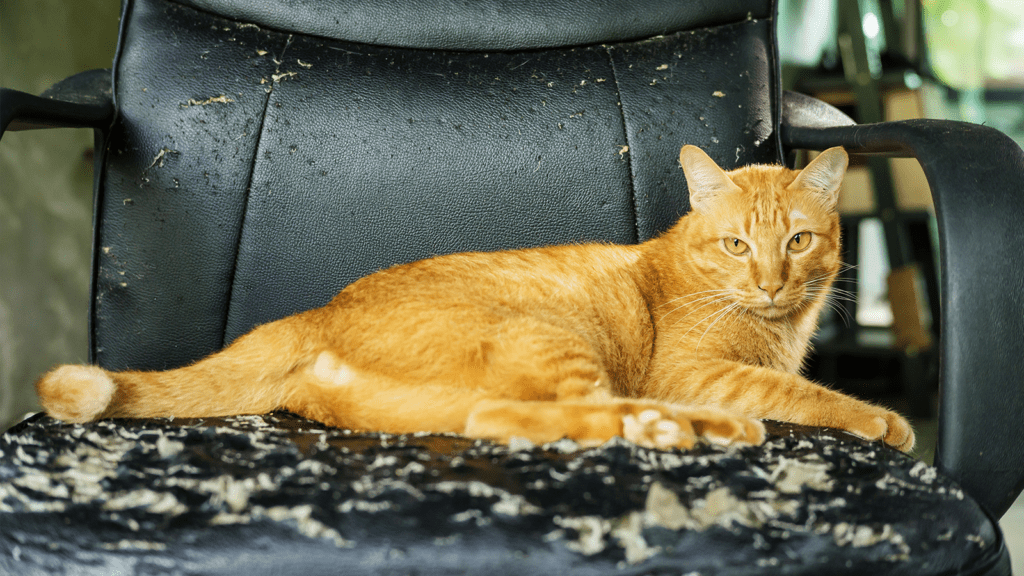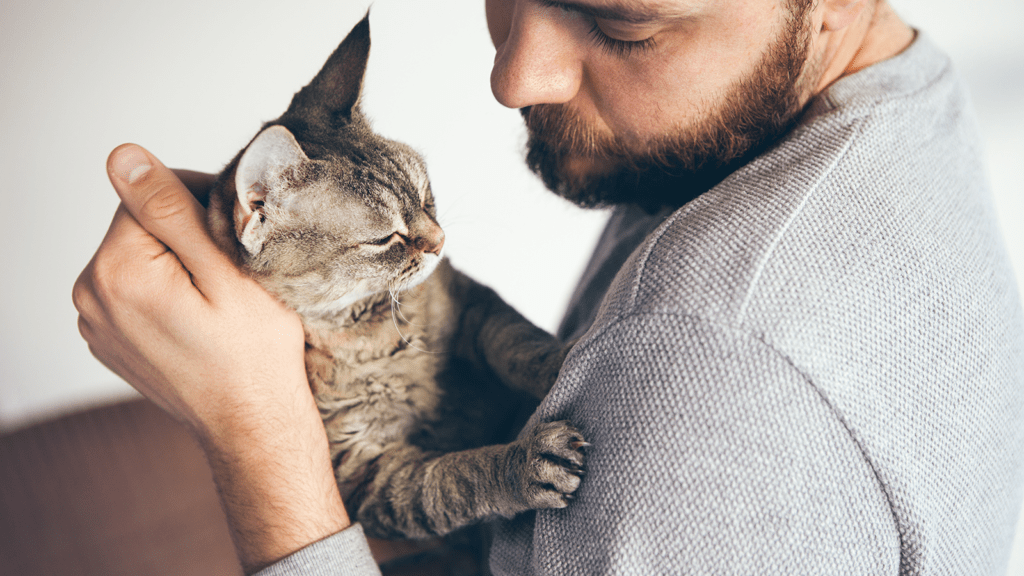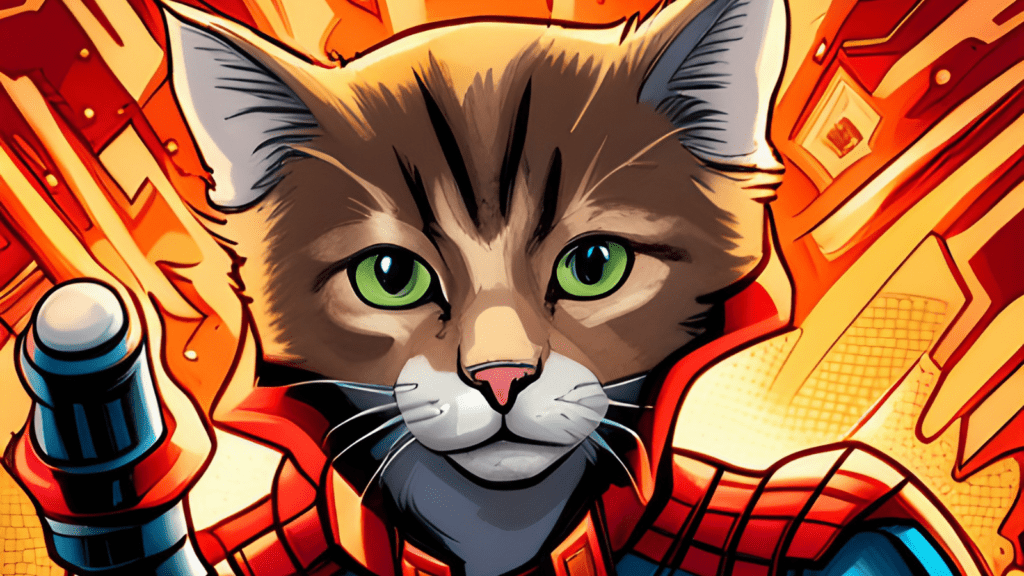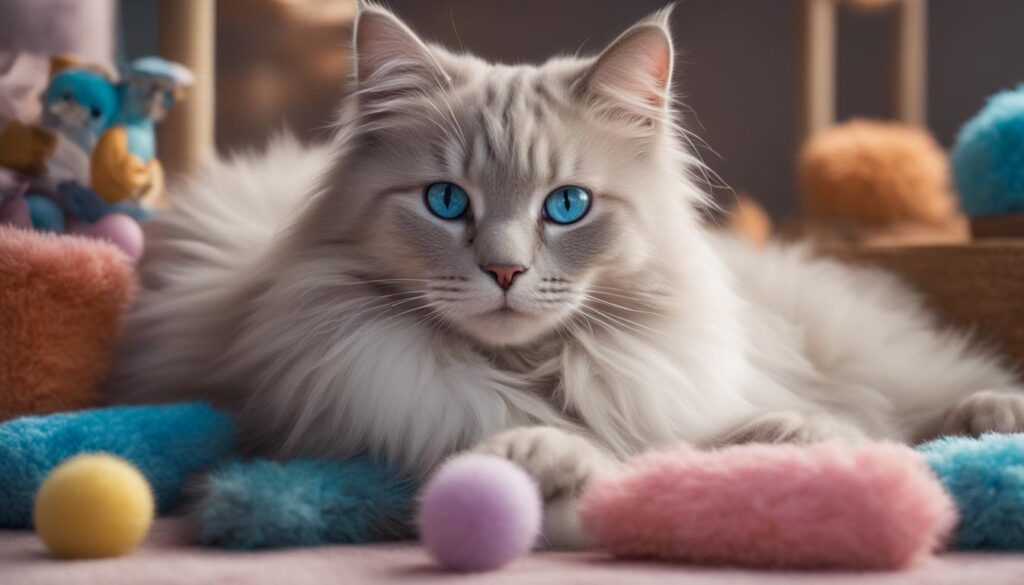
What is a Ragdoll Cat?
Are you looking for a friendly feline companion with a level temperament? Look no further than the Ragdoll cat! This cat breed is known for its charming personality and exquisite appearance. In this article, we’ll answer the question of what is a ragdoll cat, including interesting information about the breed and key characteristics that set this affectionate cat apart from other cat breeds.
Ragdoll cats are a distinctive breed known for their blue eyes and soft, plush coats. They are a relatively new breed, first developed in the 1960s by the breeder Ann Baker. Since then, These floppy cats have become increasingly popular due to their sweet, laid-back personalities and gorgeous looks.
One unique feature of Ragdoll cats is their tendency to go limp and relax when picked up, hence their name. They are also known for their love of human company and will often follow their owners around the house.
If you’re considering getting a Ragdoll cat, it’s important to note that they are a large breed, typically weighing between 10-20 pounds. Ragdoll coats and colors can vary widely, from the classic pointed coloring to mitted and bicolor patterns.
Ragdoll cats make wonderful pets for families and individuals alike. Their gentle disposition and stunning appearance are sure to win over any cat lover.
The Charm of Ragdoll Cats
There’s no doubt that Ragdoll Cats are one of the most charming breeds out there. This docile breed of feline is known for its laid-back personality and affectionate nature, making them wonderful companions and good house cats. But what exactly sets Ragdoll Cats apart from other breeds?
For one, their personality is truly unique. Ragdoll Cats are often described as “puppy-like” due to their friendly and sociable behavior and dog-like personality. Ragdolls prefer spending time with their humans and often follow them around the house, seeking attention and affection. Unlike some other cuddly cat breeds, Ragdoll Cats are generally not aloof or independent. Instead, they crave human company and often curl up in their owner’s lap for a nap.
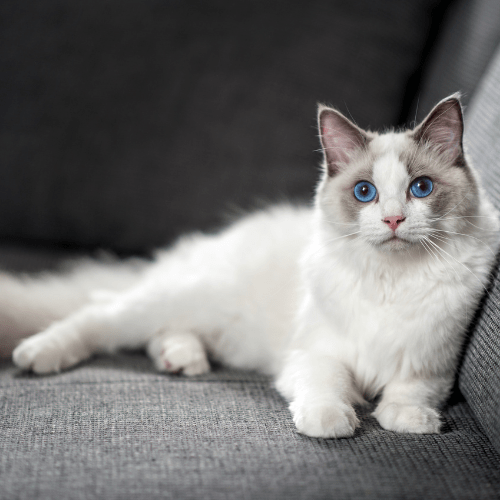
Another charming aspect of Ragdoll Cats is their beauty. These cats come in a variety of colors and patterns, ranging from seal point and seal mitted to blue mitted ragdolls. Their lustrous coats are soft to the touch, making them a pleasure to pet and snuggle up to. Ragdoll Cats are also known for their large size, with males often weighing in at around 20 pounds. This makes them a striking presence in any home.
If you’re considering adding a Ragdoll Cat to your family, it’s important to note that their charm does come with some specific care requirements. These cats should be indoor-only cats. They need regular grooming to keep their coats looking healthy and benefit from daily playtime and exercise. Additionally, Ragdoll Cats may be prone to certain health issues, such as hypertrophic cardiomyopathy or bladder stones, so it’s important to have regular check-ups with a trusted veterinarian.
“Ragdoll Cats are often described as “puppy-like” due to their friendly and sociable behavior.”
The charm of Ragdoll Cats lies in their unique combination of personality, beauty, and affection. These cats truly make wonderful pets for those looking for a loyal and loving companion.
Distinctive Features of The Ragdoll Breed
Ragdoll Cats are known for their striking appearance, which is a testament to their unique physical characteristics. From their size and weight to their coat colors and patterns, here’s a look at what makes Ragdoll Cats so distinctive:
Ragdoll Cat Size
Ragdoll Cats are one of the largest domestic cat breeds, with male cats weighing 12-20 pounds and females weighing 10-15 pounds. Their large size but gentle nature makes them a favorite among cat lovers and pet parents.
Ragdoll Cat Colors and Patterns
| Coat Color | Pattern |
|---|---|
| Seal | Pointed |
| Blue | Pointed |
| Lilac | Pointed |
| Chocolate | Pointed |
| Red | Mitted or Bicolor |
| Cream | Mitted or Bicolor |
Ragdoll Cats have a distinctive pointed coat pattern, meaning their body is lighter than their face, legs, tail, and ears. There are four common coat colors: seal, blue, lilac, and chocolate. Additionally, Ragdoll Cats can have patterns including Mitted, Bicolor, and Lynx.
Ragdoll Cat Coat
The Ragdoll Cat’s coat is medium to long in length, soft to the touch, and requires frequent grooming. They have a dense, plush coat that comes in a variety of colors and patterns, with a lighter-colored body and darker face, legs, and tail.
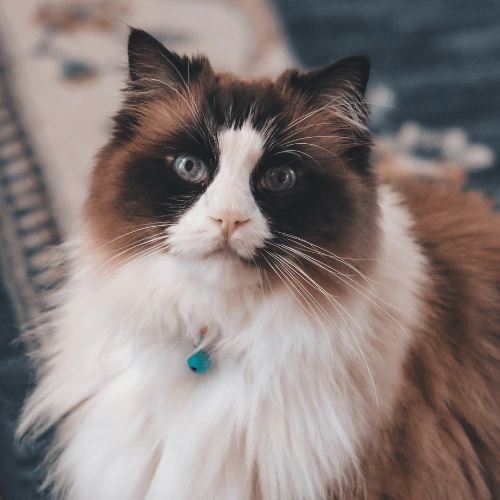
Caring for a Ragdoll Cat
Ragdoll cats have specific care needs that are crucial for ensuring their health and well-being. Proper care can help prevent health issues and ensure a long and happy life for your furry friend.
Feeding Requirements
It’s important to feed your Ragdoll cat a balanced and nutritious diet to maintain a healthy weight and reduce concerns like dental disease. Choose high-quality wet cat food that is free from artificial colors, flavors, and preservatives. Feed your cat at regular intervals and ensure they have access to fresh water at all times. Dry and wet food are not equal. Feeding your cat wet food has been proven by veterinary medicine to keep your cat more healthy.
Grooming Needs
Ragdoll cats have a long and beautiful coat that requires regular grooming to prevent matting and tangling. Brush or dematte your cat’s fur twice a week to remove loose hair and distribute natural oils throughout the coat. Use a wide-toothed comb to work out any tangles or mats. Trim your cat’s nails regularly to prevent them from becoming overgrown.
Exercise Requirements
Ragdoll cats are a fairly active breed and require regular exercise to stay healthy. Play fetch with your cat daily using toys like feather wands or balls. Encourage your cat to climb and jump by providing cat trees or perches around your home.
Medical Care
Regular veterinary checkups are essential for maintaining the health of your Ragdoll cat. Schedule annual checkups and vaccinations to keep your cat protected against common illnesses. Watch out for any changes in your cat’s behavior or health, such as lethargy or loss of appetite, and seek veterinary attention as needed. Ragdool cats are a generally healthy breed, but considering pet insurance is always a good idea.
Environmental Needs
Ragdoll cats thrive in a calm and peaceful environment, like most cats. Provide your cat with their own space, such as a comfortable bed or cat tree, where they can retreat when they need some alone time. Avoid exposing your cat to loud noises or stressful situations that could cause anxiety.
Buying a Ragdoll Cat
If you’re interested in owning a Ragdoll Cat, finding a reputable breeder or shelter should be a top concern. Ragdoll Cat breeders are individuals who raise purebred ragdolls and sell them to loving homes.
The first step in finding a breeder is to do research online. Look for breeders who specialize in Ragdoll Cats, read their reviews, and get in touch with them. The International Ragdoll Cat Association and Cat Fanciers Association of Cat Shows can help outline breeder quality, which will help reduce genetic mutation.
Questions to Ask a Breeder
When you find a breeder that you’re interested in, make sure to ask them the following questions:
- How long have you been breeding Ragdoll Cats?
- Are your cats registered with a cat registry organization like The International Cat Association or the Cat Fanciers’ Association?
- Can I see the conditions in which the cats are kept, and can I meet the parents of the kitten?
- What kind of health guarantees do you offer?
- How much do your kittens cost? How much does an older Ragdoll cat cost?
Do not buy a cat from a breeder who refuses to answer your questions or who doesn’t allow you to see where the cats are kept. You can also find beautiful cats at animal shelters and reduces. You can even find the most popular cat breeds, like a Ragdoll to adopt!
Red Flags to Watch Out For
Unfortunately, not all animal breeders are reputable, and there are a lot of shelter kitties that need a home. Make sure to watch out for the following red flags:
- Breeders who sell kittens at a much lower price than other breeders – this may indicate that the kittens aren’t purebred or that the breeder isn’t taking good care of them.
- Breeders who breed their cats too often – this is unhealthy for the cats and may indicate that the breeder is more interested in making money than in the welfare of the cats.
- Breeders who don’t offer any health guarantees or who don’t DNA test their cats for genetic diseases – this may mean that the kittens you get are more likely to have health problems.
Remember, owning a Ragdoll Cat is a big responsibility, and finding a reputable breeder is the first step in giving your cat the best possible life.
Ragdoll Cat Adoption
If you’re looking to bring a Ragdoll Cat into your home, adoption should be your first choice. Not only will you be providing a loving home for a cat in need, but you’ll also be saving a life. There are many rescue organizations and shelters that specialize in Ragdoll Cats and have cats available for adoption.
When adopting a Ragdoll Cat, it’s important to do your research and find a reputable organization that prioritizes the health and welfare of their cats. Take the time to learn about the adoption process, including any fees and requirements, and ask questions about the cat’s history and temperament.
Benefits of Adopting a Ragdoll Cat
Adopting a Ragdoll Cat can be a rewarding experience for both you and the cat. Here are some benefits to consider:
- You’ll be providing a loving home for a cat in need.
- Adoption fees are often lower than purchasing a cat from a breeder.
- You’ll be supporting the rescue and rehabilitation of cats in need.
- You’ll have the opportunity to get to know your cat’s personality before adopting.
Adopting a cat can also provide a sense of fulfillment and purpose, as you’re giving a deserving animal a second chance at life.
What to Expect When Adopting a Ragdoll Cat
When adopting a Ragdoll Cat, you can expect to go through a thorough screening process to ensure that you’re a good fit for the cat. This may include filling out an application, providing references, and having a home visit to ensure that your living environment is suitable for a cat.
By adopting a cat, you’ll have the opportunity to meet with potential matches and get to know their Ragdoll cat personality. This can be a great opportunity to find a cat that is a good fit for your lifestyle and personality.
When you bring your new cat home, it’s important to provide them with a comfortable and safe space where they can adjust to their new surroundings. It may take some time for your cat to feel comfortable and settle into their new home, so be patient and gentle with them.
“Adopting a Ragdoll Cat can be a rewarding experience for both you and the cat.”
Overall, adopting a Ragdoll Cat can be a wonderful way to add a furry friend to your family while also doing a good deed. By providing a loving home for a cat in need, you’ll be making a positive impact on both your life and the life of your new feline companion.
Ragdoll Kittens: The Joy of Welcoming a New Addition
Bringing home a Ragdoll Kitten is an exciting and rewarding experience. These adorable felines are known for their affectionate nature, charming personality, and calm nature, making them the perfect addition to any family.
Ragdoll Kittens require special care and attention, especially during their early development. Proper feeding, socialization, and play are essential for ensuring their health and happiness.
Feeding Ragdoll Kittens
Ragdoll Kittens have specific nutritional requirements, and it’s essential to provide them with high-quality food that meets their needs. Look for kitten food that is specifically formulated for the Ragdoll breed and contains a balanced blend of protein, fat, and other essential nutrients.
It’s also important to provide your kitten with plenty of fresh water and to monitor their eating habits to ensure they are getting the proper amount of food.
Socializing Ragdoll Kittens
Ragdoll Kittens are social creatures and thrive on human interaction. It’s essential to spend time bonding with your kitten, providing them with plenty of attention and affection to build a strong bond.
Introducing your kitten to other pets in your household should be done slowly and carefully, ensuring that they have time to adjust and feel comfortable in their new environment.
Playtime for Ragdoll Kittens
Play is a crucial part of a Ragdoll kitten’s development, helping them build strength, coordination, and social skills. Providing your kitten with a variety of toys and interactive play sessions can help keep them active, engaged, and happy.
It’s important to supervise playtime to ensure your kitten’s safety and to provide them with plenty of rest and relaxation time throughout the day.
Ragdoll Cats and Other Pets
Ragdoll Cats are known for their gentle and relaxed nature, making them a great addition to households with other pets. They are social creatures that get along well with other cats and dogs, as they enjoy companionship and playtime.
If you are considering getting a Ragdoll Cat as a companion for your existing pet, it is important to introduce them slowly and carefully. This will allow them to get used to each other’s scent and presence, reducing the likelihood of any territorial or predatory behavior.
While Ragdoll Cats are generally compatible with other animals, it is important to note that each cat has its own unique personality, and some may not get along with certain pets. It is important to monitor their interactions and be prepared to separate them if necessary.
If you are introducing a Ragdoll kitten to your household, it is important to supervise their interactions with other pets, especially if the kitten is particularly young or small. Gradually increasing the amount of time they spend together and providing toys and play areas for them to share can help foster positive relationships.
| Pros | Cons |
|---|---|
| Ragdolls are generally friendly and get along well with other pets. | Each cat has its own unique personality and may not get along with certain pets. |
| They enjoy companionship and playtime with other animals. | Introducing a new pet to the household requires careful monitoring and supervision. |
Overall, Ragdoll Cats can make wonderful additions to multi-pet households, offering their gentle and affectionate nature to all members of the family. With proper introductions and supervision, they can form lasting and loving bonds with other animals.
Common Health Issues in Ragdoll Cats
Ragdoll cats are generally healthy cats with a life expectancy of up to 15 years. However, like all cat breeds, Ragdolls can develop health issues that require attention. Common health problems in Ragdoll cats include:
- Hypertrophic cardiomyopathy: This is a common heart condition that can affect Ragdolls, where the heart muscle becomes thickened. Regular check-ups with a veterinarian can help to detect this condition early.
- Kidney disease: Ragdolls can be prone to developing kidney disease, which can be detected through blood and urine tests. Early detection and management can help to slow the progression of the disease.
- Feline lower urinary tract disease (FLUTD): This is a condition where cats develop urinary issues, such as difficulty urinating or frequent urination. Ragdoll cats may be at a higher risk of developing FLUTD due to their tendency to form urinary crystals. Feeding a high-quality diet and ensuring they drink plenty of water can help to prevent this condition.
Ragdoll cats may also be prone to dental issues, such as periodontal disease, due to their small mouths and crowded teeth. Regular dental cleanings and check-ups can help to prevent these issues.
If you notice any unusual behavior or symptoms in your Ragdoll cat, it’s important to take them to the veterinarian for a check-up. Early detection and treatment of health issues can improve your cat’s quality of life and prevent more serious complications down the line.

Ragdoll Cats as Therapy Animals
The gentle and affectionate nature of Ragdoll Cats makes them excellent candidates for therapy work. These loving animals have a unique ability to connect with people and provide emotional support, making them ideal companions for those in need.
Therapy animals, including Ragdoll Cats, are frequently used in a variety of settings, including hospitals, nursing homes, and rehabilitation centers. They provide comfort and companionship to patients, easing anxiety, reducing stress, and improving overall well-being.
Studies have shown that interactions with therapy animals can have a positive impact on physiological and psychological outcomes, including reducing blood pressure, improving mood, and decreasing feelings of loneliness and depression.
Ragdoll Cats are particularly well-suited for therapy work due to their calm and gentle demeanor. They are patient, affectionate, and enjoy being petted and held, which can be especially soothing for individuals who are feeling stressed or anxious.
Training Ragdoll Cats for Therapy Work
While Ragdoll Cats have a natural aptitude for therapy work, it is important to note that not all cats are suitable candidates. Training is necessary to ensure that the cat is comfortable and able to handle unfamiliar environments, loud noises, and unpredictable situations.
Training for therapy work includes socialization, obedience training, and acclimation to a variety of environments. These large cats must also be able to tolerate being handled by strangers and exhibit calm and gentle behavior at all times.
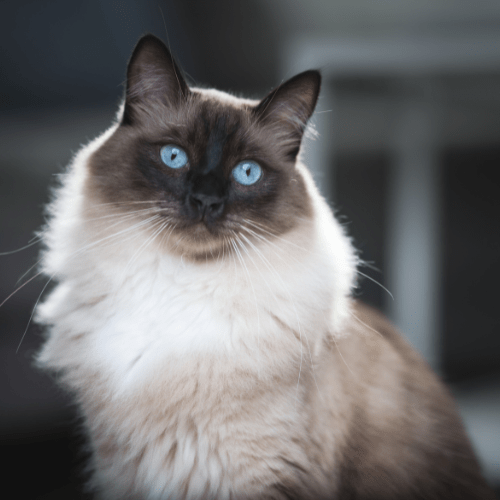
If you are interested in training your Ragdoll Cat for therapy work, it is important to work with a reputable organization that specializes in this field. They can provide guidance and support throughout the training process and ensure that your cat is well-prepared for their important role as a therapy animal.
Final Thoughts on Ragdoll Cats
It’s no secret that the Ragdoll Cat history and breed has captured the hearts of cat lovers around the world. From their endearing temperament to their distinctive physical features, these cats are truly one-of-a-kind. As we wrap up, let’s take a moment to recap some of the reasons why Ragdoll Cats make such wonderful pets.
The Charm of Ragdoll Cats
Ragdoll Cats are known for their gentle disposition and affectionate nature. They are social creatures who crave human attention and love to be cuddled and petted. Their sweet personalities and calm demeanor make them great companions for people of all ages, including families with young children.
Distinctive Features of Ragdoll Cats
One of the most striking things about Ragdoll Cats is their beautiful coat colors. From the classic seal pointed breed, the Lynx Point, to the more unusual blue-mitted and lilac bicolor, each beautiful cat is a unique work of art. In addition to their stunning appearance, Ragdoll Cats are also one of the largest domestic cat breeds, with males weighing up to 20 pounds. It’s important to note that the Ragdoll breed are not hypoallergenic cats.
Caring for a Ragdoll Cat
Ragdoll Cats have specific care needs that are important to understand in order to keep them healthy and happy. This includes regular grooming to maintain their long, silky fur, as well as providing them with enough exercise to keep them fit. A high-quality diet is also essential for their well-being, as Ragdoll Cats are prone to obesity.
Ragdoll Cat Adoption
If you’re considering adding a Ragdoll Cat to your family, adoption is a great option. There are many rescue organizations and shelters that specialize in this breed and can help you find the perfect pet. Adopting a cat not only provides a loving home for an animal in need, but it also saves you the expense of purchasing a cat from a breeder.
Common Health Issues in Ragdoll Cats
While Ragdoll Cats are generally healthy and hardy, they are prone to certain health issues that all owners should be aware of. This includes heart disease, bladder stones, and kidney disease. Regular visits to the vet can help catch these issues early and prevent them from becoming more serious.
Ragdoll Cats as Therapy Animals
Finally, it’s worth noting that Ragdoll Cats make excellent therapy animals. Their calm and friendly demeanor can have a positive effect on people who are going through difficult times, such as those in hospitals or nursing homes. If you’re interested in getting involved in therapy work with your cat, there are many organizations that can help you get started.
Overall, the Ragdoll breed is a truly special one that brings joy and companionship to countless people around the world. Whether you’re considering getting a Ragdoll Cat or admire them from afar, there’s no denying their charm and appeal as pets.

